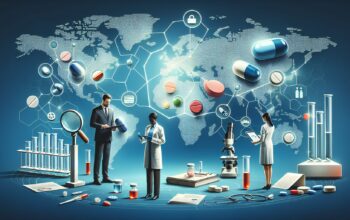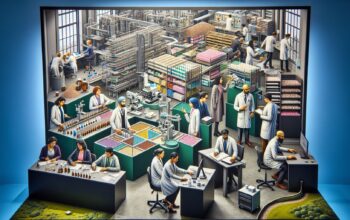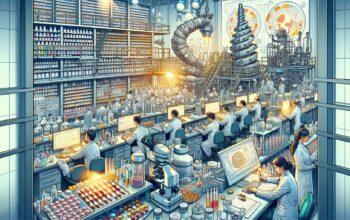
With each passing day, the world of pharmaceuticals takes leaps and bounds towards innovation and advancements. Medicines have always been an integral part of human society, providing relief from ailments and enhancing the quality of life. From ancient times to the modern era, the history of pharmaceuticals showcases an incredible journey of discovery, improvement, and life-changing breakthroughs. In this blog post, we will delve into the intricate world of medicines, exploring their evolution and the pharmaceutical industry that continues to shape our lives.
The Beginnings: Ancient Remedies and Herbal Medicines
The roots of medicine can be traced back thousands of years ago when our ancestors in ancient civilizations relied on natural sources for treating diseases. Herbal medicines, formed by using plants, herbs, and minerals, were the primary healing methods. Over time, knowledge regarding the healing properties of various substances expanded, giving rise to medical practices like Ayurveda, Traditional Chinese Medicine, and Greek medicine.
The Scientific Revolution: Modern Medicine’s Foundation
The modern pharmaceutical world took a significant leap forward in the 19th century during the scientific revolution. Scientists began to isolate active compounds from natural sources, leading to the development of synthetic drugs. This era witnessed remarkable achievements, including the discovery of antibiotics like penicillin and the establishment of rigorous testing protocols for drug safety. Modern medicine paved the way for significant advancements in healthcare, revolutionizing the treatment of diseases.
Pharmaceutical Giants: Key Players in Drug Development
The pharmaceutical industry plays a crucial role in bringing new medicines to the market. Today, it is a multi-billion-dollar industry driven by research, innovation, and the pursuit of new therapeutic options. Pharmaceutical companies invest heavily in research and development (R&D) to discover novel drugs, conduct clinical trials, and obtain regulatory approvals. Their efforts encompass a wide range of fields, from oncology to neuroscience, and from rare diseases to immunology. The collaboration between academia, government agencies, and the private sector is instrumental in transforming scientific discoveries into safe and effective medicines.
Challenges and Future Prospects
The pharmaceutical world is not without challenges. The development of new drugs is a complex process that demands substantial investments and extensive testing. Regulatory frameworks ensure safety and efficacy, but they can often be time-consuming and stringent. Additionally, ethical and societal aspects, such as access to affordable medicines and the impact on the environment, require careful consideration.
Looking ahead, the future of medicines appears promising. Advancements in areas like genetic therapies, precision medicine, and artificial intelligence are revolutionizing drug development and personalized treatments. Researchers are exploring innovative approaches to combat diseases that were once considered untreatable, offering renewed hope to patients around the globe.
Conclusion
Medicines have come a long way from their humble ancient origins to the complex and diverse offerings of the modern pharmaceutical world. The relentless pursuit of innovation, driven by the pharmaceutical industry, has transformed healthcare and saved countless lives. As we continue to face new challenges and embrace groundbreaking technologies, we can be optimistic about a future brimming with even more remarkable discoveries and life-changing treatments. The pharmaceutical world will always remain an essential pillar of our society, ensuring that we have the tools to battle diseases and lead healthier, happier lives.


